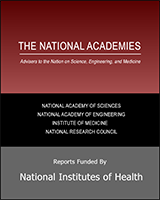From: 5, Health Policy

NCBI Bookshelf. A service of the National Library of Medicine, National Institutes of Health.
When stakeholders are not included early in the decisionmaking process, they are more likely to oppose the risk management decision and block its implementation. This has been happening in Granite City, Illinois, since 1993, according to testimony from Mayor Ronald Selph and Alderman Craig Tarpoff. Heavily contaminated with lead by a former smelter, much of the city was designated by the Environmental Protection Agency (EPA) as a Superfund site. Based on soil sample analyses and a screening risk assessment model, EPA decided to remove the contaminated soil around 1,200 homes and businesses and haul it away.
Some believe that EPA made this decision without adequately consulting the community. City officials believe that this remedy ignored a number of problems, including health risks from dust and lead-based paint.
The industrial facility held responsible for the contamination did not respond to EPA's decision, so the agency sued the facility. The city then filed a petition in the suit because officials felt that neither EPA nor the responsible party represented the best interests of the community. EPA began the cleanup anyway but was restrained by court order. EPA retained an expert whose analysis supported the agency's choice of remedy, and the city retained an expert whose analysis concluded that the removal of contaminated soil would be fruitless unless the remaining sources of contamination—house paint, the smelter waste pile, and the trucking lot soil—were removed as well. Granite City residents are left confused and caught in the middle. Some support the city, and some support EPA. Property values have fallen. As of late 1996, the case remains unresolved and is back in federal courts.
SOURCE: Presidential/Congressional Commission on Risk Assessment and Risk Management, 1997.
From: 5, Health Policy

NCBI Bookshelf. A service of the National Library of Medicine, National Institutes of Health.